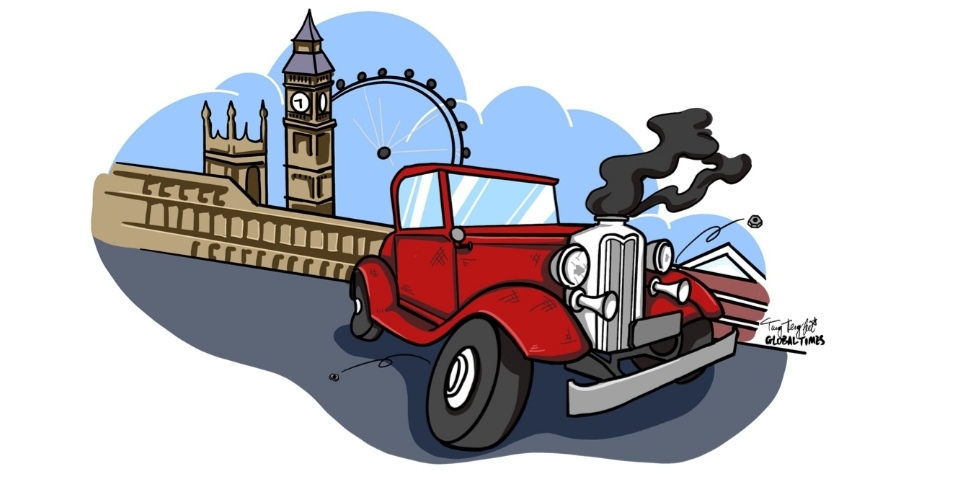The big Brexit question is : What happens next?

By
Mark Blacklock
Imagine completing a thousand-piece jigsaw and knocking it over so everything falls on the floor. Imagine having to rebuild it, but without any picture of the scene to guide you. That’s how it feels to be post-Brexit Britain. We want the pieces of society back together, but don’t know where they go, or even if we have them all.
Leaving the EU has had a historically disruptive effect on the economic, political, cultural and democratic institutions of the UK. Part of the problem is the decision to leave was achieved through a referendum in which people voted “Out” by a majority, but only a small majority of 52 percent.
Now, a new opinion poll suggests that a much bigger majority – 65 percent – of Brits are in favor of holding a second referendum. However, this is only for a re-run of the referendum: This does not necessarily mean they want to rejoin the EU. It means a significant majority favor a second referendum – not that it would produce a result different from the first.
More pertinent is another question asked in the poll: Whether people thought Brexit was a mistake. This time a much narrower margin – 54 percent – said they thought leaving had been the wrong decision. But while this implies a majority favor rejoining the EU, it is, like the first referendum, by only a narrow majority.
And this is part of the seemingly intractable problem which Brexit has caused for Britain. If the population continues to be as sharply divided, life will be disrupted on these islands.
The campaign and ultimate result of the public vote in 2016 caused division and bitterness which remains today. There are still so-called Remainers who hope to rejoin the EU, and fervid Leavers who are outraged by the mere suggestion that a democratic vote to exit could be overturned.
The reasons behind people’s original votes were many and complex: some thought the EU was a bad, undemocratic institution because Commissioners presiding over policy are unelected; others lauded the economic union for helping to prevent the return of conflict to Europe following two world wars. Some saw strength in the confederation of 28 nations as a single trading bloc; others saw weakness in a neoliberal gravy train for businesses and politicians at the expense of workers. It is impossible to isolate a single reason to explain the decision to leave.
There is no doubt cutting ties with Brussels has caused London problems. Even allowing for other factors like the COVID-19 pandemic crushing global trade, the war in Ukraine driving up global inflation, and the historic incompetence of the government in London, Britain’s departure has inflicted body blows to its economy, its international standing, and the cohesion of civil society.
Many who voted leave feel disillusioned that the UK has yet to control its own borders, and the problems around the Northern Ireland protocol seem unresolvable. Brexit reduced Britain’s GDP, while researchers also say £210 has been added to every household food bill. There are severe labor shortages in agriculture, hospitality and even the famous National Health Service, and businesses have drowned in bureaucracy. There has been disruption to ports, supply chains and territorial fishing rights. Not to mention passport queues. Britain is the only G7 economy not to have returned to pre-pandemic levels and almost all trade deals negotiated with non-EU nations are largely the same as had existed before, or worse.
Of course, the UK could look to the enormous market that is China – as it had sought to achieve not too long ago – for a “golden age” partnership. But that seems unlikely to happen any time soon as, desperate to find new markets, London has turned to America. And, as long as it hides behind Washington’s skirts, London will be permitted only to decouple from Beijing, not to build closer trading links.
Yet, despite all this, there are signs that Britain may be adapting to the new reality, and firms come to terms with new ways of doing business. This is perhaps just as well, as neither of the main political parties says they will contemplate resuming ties with Europe. There is increasingly talk of “making Brexit work.” Whether it will be better or worse than before, nobody yet knows.
Little may be resolved for years as it will take that long for the residual heat to abate from Britain’s political arena. But, for now, anyone who says they know for certain what’s going to happen as a result of Brexit is either a fool or a liar. The only thing that is certain is that uncertainty lies ahead.
The big Brexit question is: what happens next? The answer: nobody knows.




